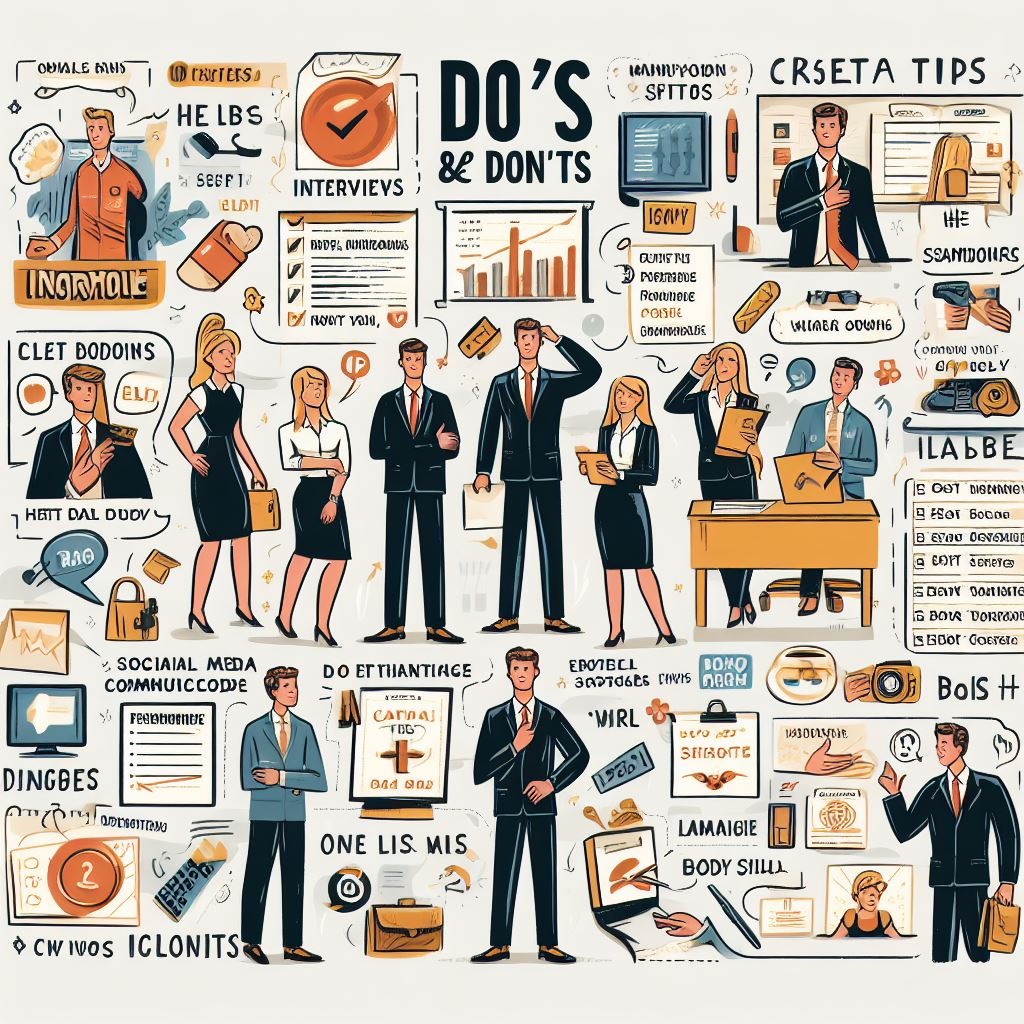"You never get a second chance to make a first impression." - Will Rogers
Entering the job market as a fresher can be an exciting yet daunting experience. The competitive landscape demands not only technical proficiency but also the ability to demonstrate how you handle real-world situations. This is where behavioral interviews come into play. Behavioral interviews focus on assessing your past experiences to predict future performance, making them a crucial aspect of the hiring process. Preparing for these interviews is essential, even if your technical skills are not as robust as you would like them to be. Here’s why and how you can benefit from them.

Understanding Behavioral Interviews
Behavioral interviews are structured around the idea that past behavior is the best predictor of future behavior. Interviewers use these questions to understand how you have handled various situations in the past, which helps them gauge your problem-solving abilities, interpersonal skills, and overall suitability for the role. Typical questions start with phrases like
“Tell me about a time when…”
or
“Describe a situation where…”.
Why Behavioral Interviews Matter
Highlighting Transferable Skills: Even if you lack strong technical skills, behavioral interviews allow you to showcase transferable skills such as communication, teamwork, leadership, and problem-solving. These skills are often just as important to employers as technical abilities.
Demonstrating Cultural Fit: Companies are increasingly valuing cultural fit and soft skills over hard skills. Behavioral interviews help employers determine if your values, work style, and personality align with the company’s culture.
Evidencing Adaptability: The ability to adapt and learn new skills quickly is vital in today’s fast-paced work environment. By preparing for behavioral interviews, you can provide examples of how you have successfully adapted to new challenges and environments in the past.
Building Confidence: Preparing for behavioral interviews helps build your confidence. Knowing you have solid examples to discuss can reduce anxiety and help you communicate more effectively during the interview.
How to Prepare for Behavioral Interviews
Identify Key Competencies: Start by identifying the key competencies required for the role you are applying for. These might include teamwork, leadership, problem-solving, adaptability, and communication. Review the job description carefully and note the skills and behaviors the employer is looking for.
Reflect on Past Experiences: Think about your past experiences, including internships, part-time jobs, volunteer work, and academic projects. Identify situations where you demonstrated the key competencies. Use the STAR method (Situation, Task, Action, Result) to structure your responses:
- Situation: Describe the context within which you performed a task or faced a challenge at work.
- Task: Explain the actual task or goal you were working towards.
- Action: Describe the specific actions you took to address the task or challenge.
- Result: Share the outcomes or results of your actions, emphasizing what you learned and how you contributed to the organization.
Practice Your Responses: Practice answering behavioral interview questions using the STAR method. Rehearse your responses out loud, ideally with a friend or mentor who can provide feedback. The more you practice, the more comfortable you will become with articulating your experiences.
Prepare for Common Questions: Some common behavioral interview questions include:
- “Tell me about a time when you had to work as part of a team.”
- “Describe a situation where you had to solve a difficult problem.”
- “Give an example of a goal you set and how you achieved it.”
- “Tell me about a time when you had to handle a stressful situation.” Prepare specific examples for these and similar questions.
Showcase Your Learning Ability: If your technical skills are not as strong, emphasize your willingness and ability to learn. Provide examples of how you have quickly picked up new skills or knowledge in the past. This shows employers that you are proactive and capable of self-improvement.
Benefits of Behavioral Interviews for Freshers
Equal Opportunity: Behavioral interviews level the playing field for freshers by focusing on experiences rather than just technical expertise. This approach allows candidates from diverse backgrounds to showcase their potential.
Enhanced Self-Awareness: Preparing for behavioral interviews helps you become more aware of your strengths and areas for improvement. This self-awareness is beneficial not only for the interview but also for your overall career development.
Improved Communication Skills: Practicing behavioral interview questions improves your ability to communicate effectively. You learn how to structure your responses, highlight relevant experiences, and articulate your thoughts clearly and concisely.
Better Job Fit: Behavioral interviews help you and the employer determine if there is a good fit between your skills, values, and the company’s needs. This leads to better job satisfaction and reduces the likelihood of early turnover.
Long-Term Career Growth: The skills you develop while preparing for behavioral interviews, such as self-reflection, communication, and adaptability, are essential for long-term career growth. These skills will serve you well in future job searches and professional interactions.
"Success is where preparation and opportunity meet." - Bobby Unser
Remember, the aim is not merely listing these skills but illustrating them with real-life scenarios. By showcasing these soft skills on your resume, you create a compelling narrative that sets you apart in the competitive job market.
PLACEMENT PACK
For more insights and career hacks, visit vishwajeet.org or message us on WhatsApp at +91 8390042457. Subscribe to our YouTube channel for comprehensive career guidance. Explore our Freshers Program at #Vishwajeet, ensuring a brighter career path with a nominal workshop fee. Let’s embark on a journey of learning and growth together!
FAQs for Behavioral Interview Preparation
1. What are behavioral interview questions? Behavioral interview questions are designed to assess a candidate’s past behavior in professional situations to predict future performance. These questions often start with prompts like “Tell me about a time when…” or “Give an example of…”
2. Why are behavioral interviews important for freshers? Behavioral interviews help freshers showcase their soft skills and problem-solving abilities, which can be crucial when they lack extensive technical experience. Preparing for these questions can demonstrate readiness and adaptability to potential employers.
3. How can I prepare for a behavioral interview if I have limited work experience? Even with limited work experience, you can prepare by reflecting on past academic projects, volunteer work, internships, and group activities. Think about situations where you demonstrated key skills like teamwork, leadership, and problem-solving.
4. What is the STAR method, and how does it help in answering behavioral questions? The STAR method stands for Situation, Task, Action, and Result. It provides a structured way to answer behavioral questions by describing the context, your responsibilities, the actions you took, and the outcomes. This method helps deliver clear and concise responses.
5. Can you provide an example of a behavioral interview question and answer using the STAR method? Sure! Question: “Tell me about a time when you faced a conflict at work.” Answer: “In my last internship (Situation), I was responsible for coordinating a team project (Task). Two team members disagreed on the project direction. I facilitated a meeting to discuss their viewpoints and find common ground (Action). We successfully completed the project on time with everyone’s input (Result).”
6. What are some common behavioral interview questions asked by employers? Here are some frequently asked behavioral interview questions:
- “Tell me about a time you demonstrated leadership skills.”
- “Describe a situation where you had to work under pressure.”
- “Give an example of a goal you set and how you achieved it.”
- “Explain a time when you had to deal with a difficult team member.”
- “Tell me about a time you failed and how you handled it.”
- “Describe a situation where you had to solve a problem creatively.”
- “Give an example of how you managed a tight deadline.”
- “Tell me about a time you had to learn something new quickly.”
- “Explain a situation where you had to handle multiple tasks at once.”
- “Describe a time when you went above and beyond your job duties.”
7. Why is it beneficial to prepare for behavioral interviews even if my technical skills are strong? Preparing for behavioral interviews is beneficial because employers look for well-rounded candidates who can adapt, communicate effectively, and solve problems. Strong technical skills are important, but soft skills like teamwork and leadership are often critical to job success.
8. How can I highlight my adaptability in a behavioral interview? You can highlight adaptability by sharing examples of how you successfully managed changes or unexpected challenges. Describe specific instances where you had to adjust your approach, learn new skills, or handle shifting priorities effectively.
9. What should I do if I can’t think of an example for a behavioral question during the interview? If you can’t think of an example, take a moment to gather your thoughts. It’s okay to ask for a brief pause. You can also explain your thought process and relate it to a similar situation or discuss how you would handle a hypothetical scenario based on your past experiences.
10. How can Vishwajeet.org’s Freshers Program help me prepare for behavioral interviews? Vishwajeet.org’s Freshers Program offers comprehensive training on resume development, LinkedIn profiling, and interview preparation. By participating in this program, you can gain insights into how to effectively showcase your skills and experiences, receive personalized feedback, and build confidence for your behavioral interviews.
Keywords
- Behavioral Interviews
- Freshers Preparation
- STAR Method
- Soft Skills
- Interview Tips
- Leadership Skills
- Problem-Solving
- Adaptability
- Teamwork
- Career Success
- Communication Skills
- Job Readiness
- Resume Development
- LinkedIn Profiling
- Interview Preparation
- Employer Expectations
- Professional Development
- Career Guidance
- Freshers Program
- Vishwajeet.org
![]()


